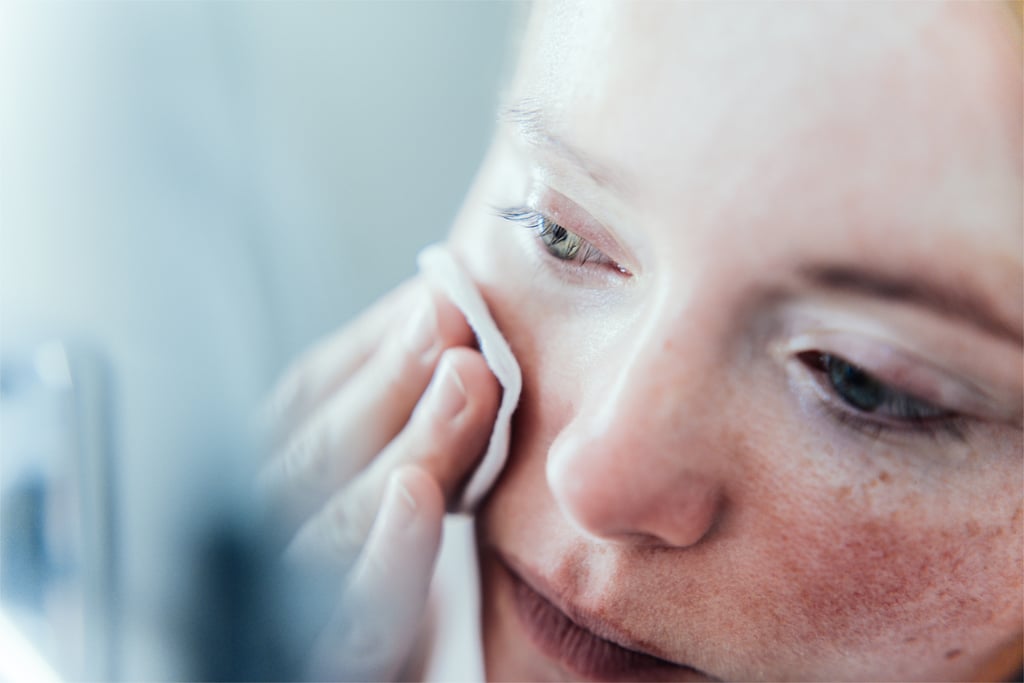There's a long list of things that happen to your body during and after pregnancy, some of which are unexpected and not widely discussed. Postpartum acne, for instance, is a common conundrum that tends to pop up, and it can be frustrating for many adults who don't often experience breakouts outside of pregnancy to understand how to treat it and which products are safe to use.
The reason behind postpartum acne, in short, has to do with hormones — specifically estrogen and progesterone.
"During pregnancy, the estrogen hormone rapidly increases, which gives most women what we like to call 'the pregnancy glow,'" dermatologist Lian Mack, MD [1], told POPSUGAR. "This is due to the increase of blood flow in the skin. During the postpartum period, estrogen drops at a dramatic rate. This sudden drop in estrogen combined with the surge of progesterone may result in postpartum acne for some."
This is why some women who experience this can often go from having clear and glowing skin while pregnant to breaking out shortly after. But to be clear, postpartum acne isn't a condition that people deal with only after pregnancy.
"Many women experience acne during pregnancy, not just postpartum," Mack said. "Usually women that experience acne during pregnancy see the condition clear up tremendously after giving birth. Others may still have visible acne after giving birth, and in this case, it is deemed postpartum acne."
To get the lowdown on how to treat this particular acne, keep reading.
